Because of their fruit and appearance, lemon trees are a classic plant to care for. You may encounter problems such as your lemon tree not growing any new leaves. How could this happen, and what should you do about it? After doing the research, we will answer these for you in this post. Read on!
When your lemon tree stops growing new leaves, it is not at its healthiest. Your lemon tree lacks nutrition from one of its basic needs, preventing new growth. You can nurse your tree back to health by finding the root of the problem and boosting your tree's nutrition.
You can take different approaches to care for your lemon tree to encourage new growth. The first step is finding the root of the problem, which will be discussed in the next sections. Keep reading for more information on promoting new leaf growth in your lemon tree!

Why The Lemon Tree Won't Grow New Leaves
Malnutrition is the main reason your lemon tree is not growing new leaves. Another cause could be extreme weather, which also factors into the poor health of your tree. You can address these issues before they worsen so your tree recovers faster.
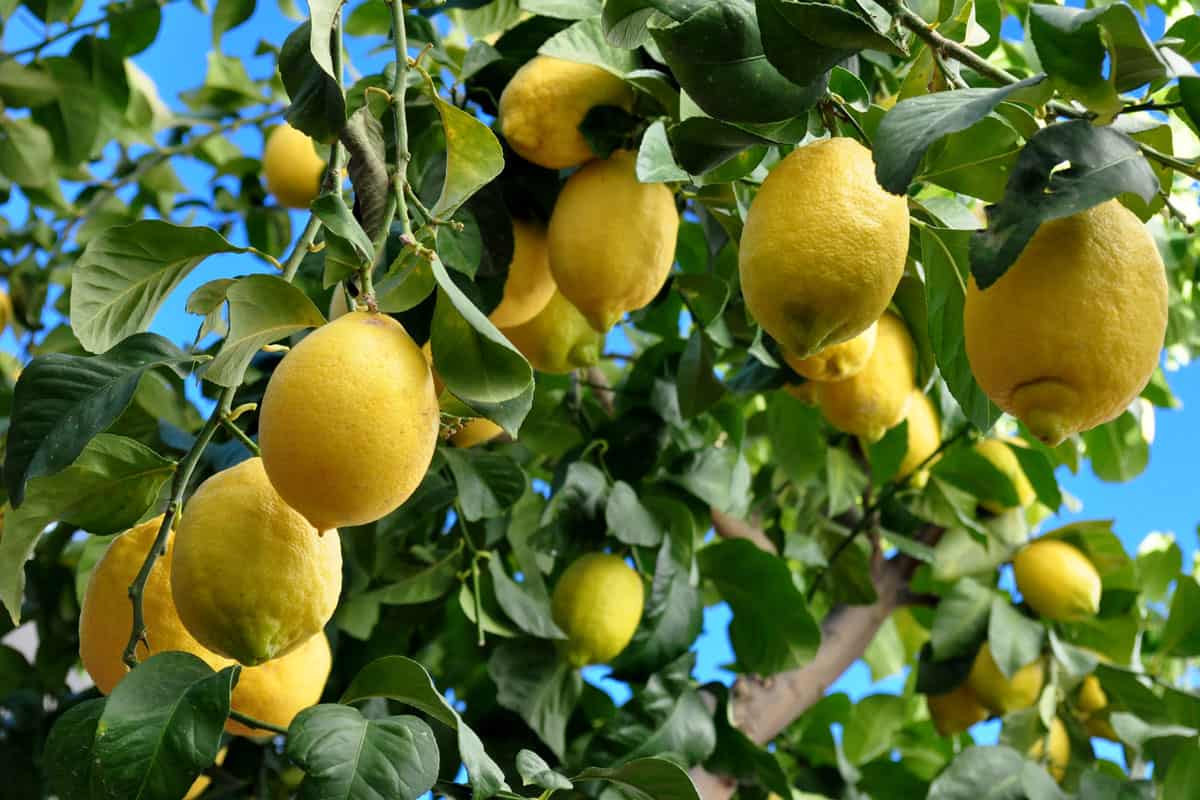
Your Lemon Tree Lacks Nutrition
Like any plant, lemon trees need water, sunlight, good soil, and plant feed to thrive. Your tree should renew its leaves without issue as long as you care for it. At best, you can simply improve how much and how often you give your lemon tree these things to fix the issue.
Conversely, you may give your tree too much of a certain element. This can still lead to poor health. Examples include overwatering, too much sunlight, or overfeeding with plant food.
Worse scenarios for your lemon tree include illnesses, stress, and rot. These are much harder to treat and could kill your tree. Weak trees will not be able to grow, especially if there is damage to the stem. Pests can also be preventing your lemon tree from growing new leaves.
The Climate Is Not Suitable
You can grow lemon trees in hardiness zone levels 8 to 11. These climates are hot enough to let your trees grow outside. In colder zones, growing lemon trees are still possible; however, you will have to take extra care of them in the winter.
Lemon trees thrive in hot and humid climates. Healthier mature trees can probably survive in the winter with enough preparation. However, the frost will cause harm at 29 degrees Fahrenheit and below. Different variants will react to the cold differently.
High levels of heat can also cause lemon trees to stop growing. This is typically at 103 degrees Fahrenheit and above.
The ideal temperature for lemon trees is 70 to 100 degrees Fahrenheit, but they can still survive temperatures as low as 55 degrees. If the temperature goes even lower, take your lemon tree indoors.
What To Do For Lemon Tree To Grow New Leaves
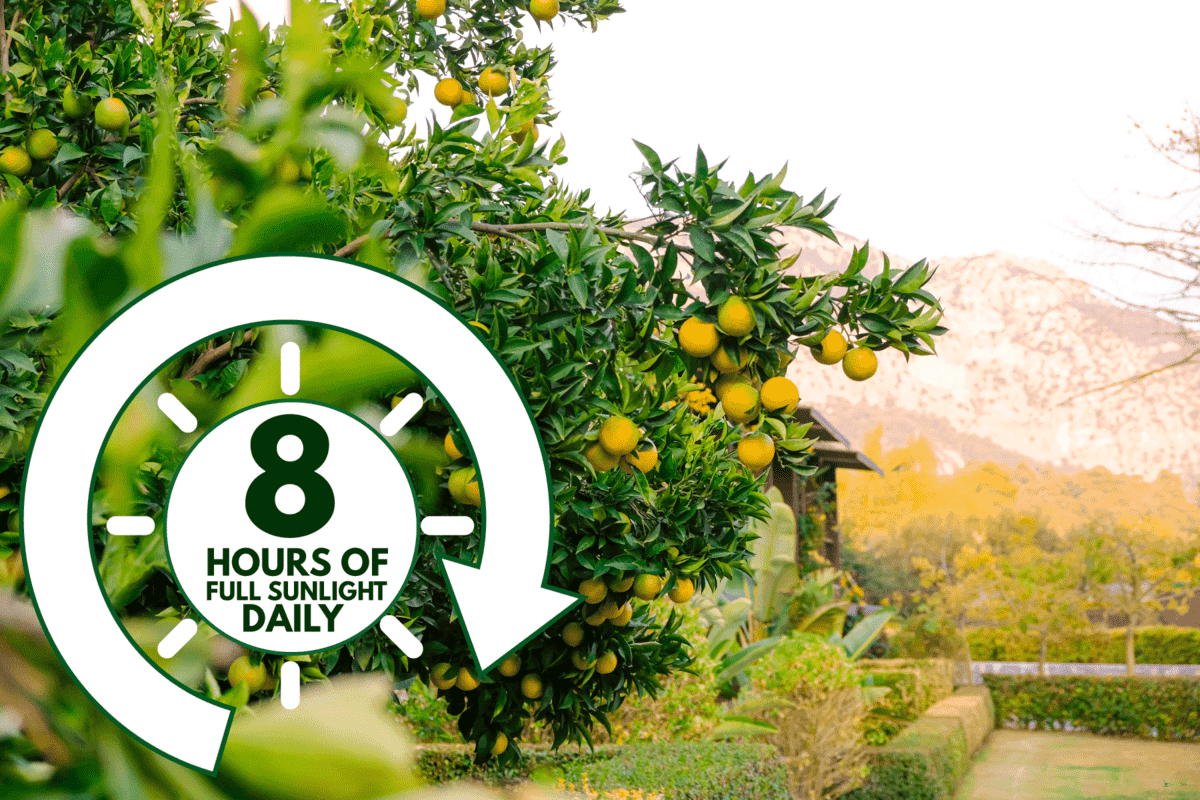
When your lemon tree is not growing new leaves, you can work on improving its growth conditions. Give them around eight hours of full sunlight daily. This is especially important for indoor trees, which you should set by a south-facing window for best results.
Water your lemon tree once a week. Ensure that the soil is always moist but never overwater. Sandy loam soil is best for lemon trees since it is well-draining. Soil with 6-7.5 pH is best for lemon trees. You can also use pre-made potting mix for citruses.
Click here to see Citrus Potting Mix on Amazon.
You can also fertilize your lemon tree. Citrus fertilizers are available for purchase, but you can also use homemade ones. These are usually some ratio of NPK with added nutrients. This includes calcium, zinc, iron, and sulfur. You can also get these from egg shells and banana peels!
Click here to see Citrus Fertilizer Mix on Amazon.
Some sources may tell you that coffee grounds are good for lemon trees since they are rich in nitrogen. Do not put coffee grounds directly into your lemon tree's soil. Instead, compost them to get rid of all of the chemicals. You can then mix this compost into your lemon tree's soil.
Why Has The Lemon Tree Lost All Its Leaves?
Your lemon tree loses its leaves because it stops growing new ones. Leaf loss is primarily due to stress. This is either from overwatering or illness, among others.
Overwatering causes the leaves to drop, but they should start growing back once a more normal schedule is set.

Inspect your lemon tree for signs of rot. Damage to the tree bark and rot leads to leaf fall since the tree cannot properly manage its nutrients. Rot, in particular, can be devastating for any tree. It can occur from overwatering, fungi, or an infection. Insects are also to blame for this.
Stress from temperature changes can shock your lemon tree into dropping its leaves. If you live somewhere with a harsh climate, opt to grow your lemon tree indoors so that you have more control over its environment.
When your lemon tree stops growing new leaves, the leaf fall becomes all the more apparent. Should your tree suffer from this, you must address it as soon as possible. Leaving the problem for too long will lower the chances for your lemon tree to recover.
Can A Lemon Tree Come Back After Losing Leaves?
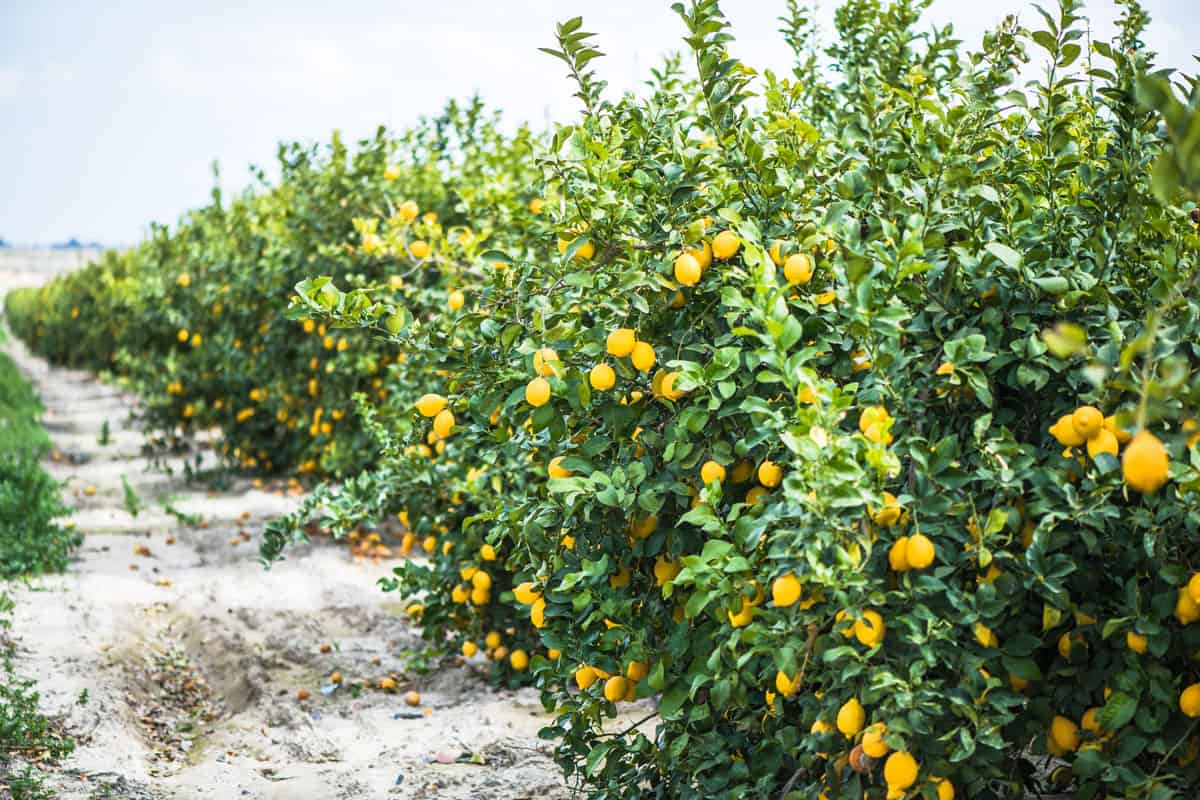
The good news is that you can still save your lemon tree even when it starts losing its leaves. However, act quickly because it can reach a point where the tree may have already died. You can still try reviving it by giving it your attention.
Here are some of the symptoms of a dying lemon tree:
- shedding leaves
- shedding branches
- no signs of leaf or flower growth
- cracked tree bark
- tree rot (especially root rot)
While your lemon tree growth will slow down in winter or colder months, slow growth is unusual for most of the year. Keep an eye out for these warning signs.
To revive your tree, you can try improving how you care for it. You can also try pesticides to ward off pests that will cause harm to your lemon tree. Horticultural oil is another treatment for trees that are prone to illness. Should reviving your tree be too big of an undertaking, you can contact an arborist.
An arborist is a tree specialist. You may contact one for consultation or even have them look at your tree. They should be able to determine the right course of action when it comes to dead or dying lemon trees.
How Do You Restart A Lemon Tree?
After working on healing your lemon tree, you will want to continue its upkeep. If your revitalization attempts have been successful, your lemon tree will start looking better after a few weeks to a few months. This should be a good place for you to restart its maintenance.
Aside from providing your lemon tree with enough nutrients, you can keep it healthy by pruning it. Pruning helps improve the growth of your tree as it encourages regrowth. It also prevents your tree from getting too heavy and gives more light and aeration to parts of the tree.
Why Is My Lemon Tree Not Producing Lemons
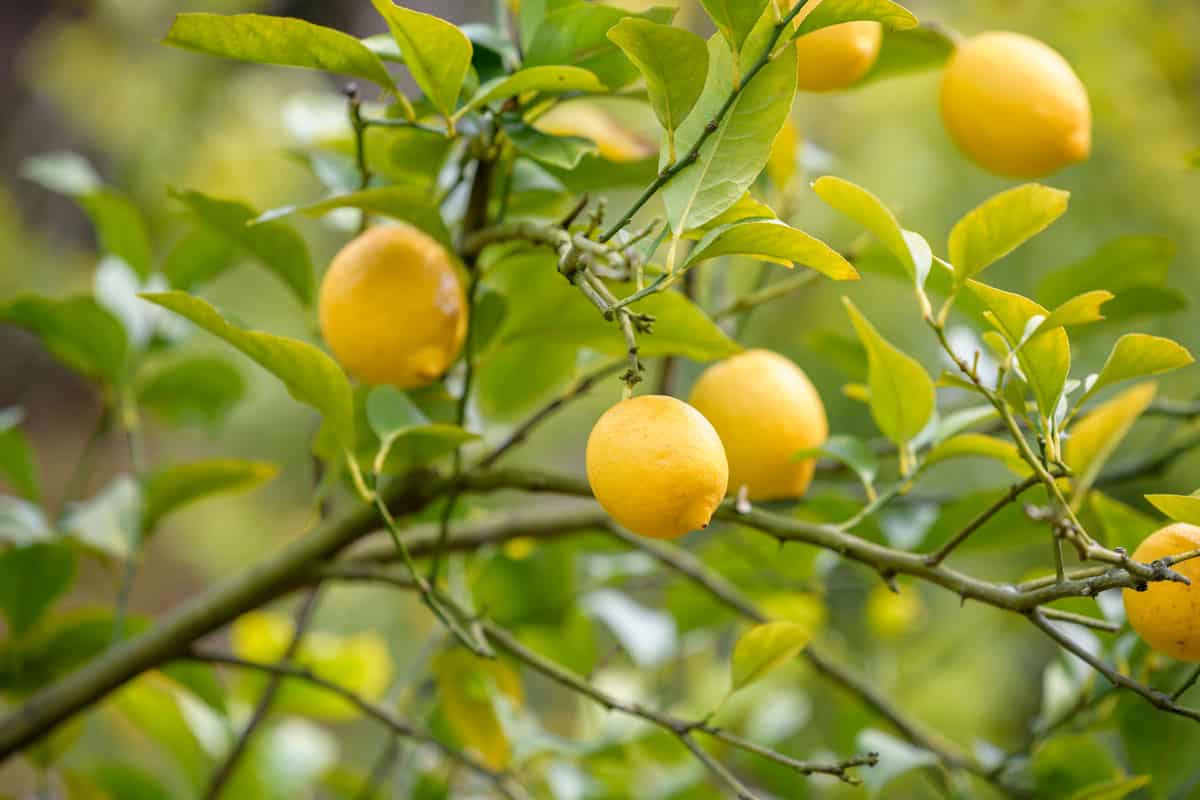
Your lemon tree may not be producing lemons due to malnutrition or is simply not ready. Lemon trees will take three to six years to grow from seed. In the fifth or sixth year, fruit should start growing.
Healthy lemon trees flower all year round in warm climates. Otherwise, they bloom between February and April. Lemon fruits take between four months to a year to grow from flowers. If you have a healthy tree under good conditions, do not worry much if your lemons are taking a while to grow.
A lemon tree is not at its full height until around 10 to 15 years and can grow between 20 to 30 feet tall. Knowing the growth cycle of lemon trees, you can figure out when to expect lemon fruit growth.
Wrapping Things Up
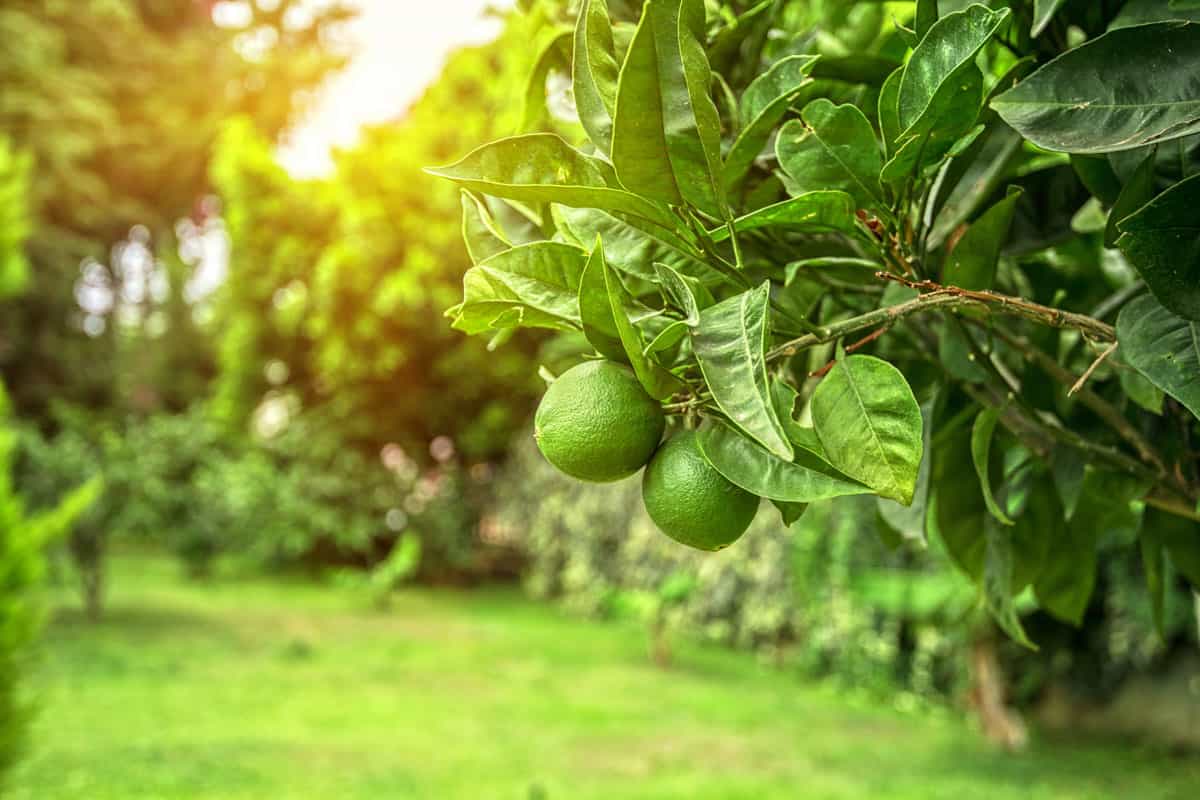
Malnutrition is the main culprit behind why your lemon tree is not growing new leaves. Other factors, such as climate stress or shock, prevent leaf growth and cause leaf fall. You can remedy this by providing your lemon tree with enough care and nutrition.
Did you find this post helpful? If you did, check out our other articles before you go!




